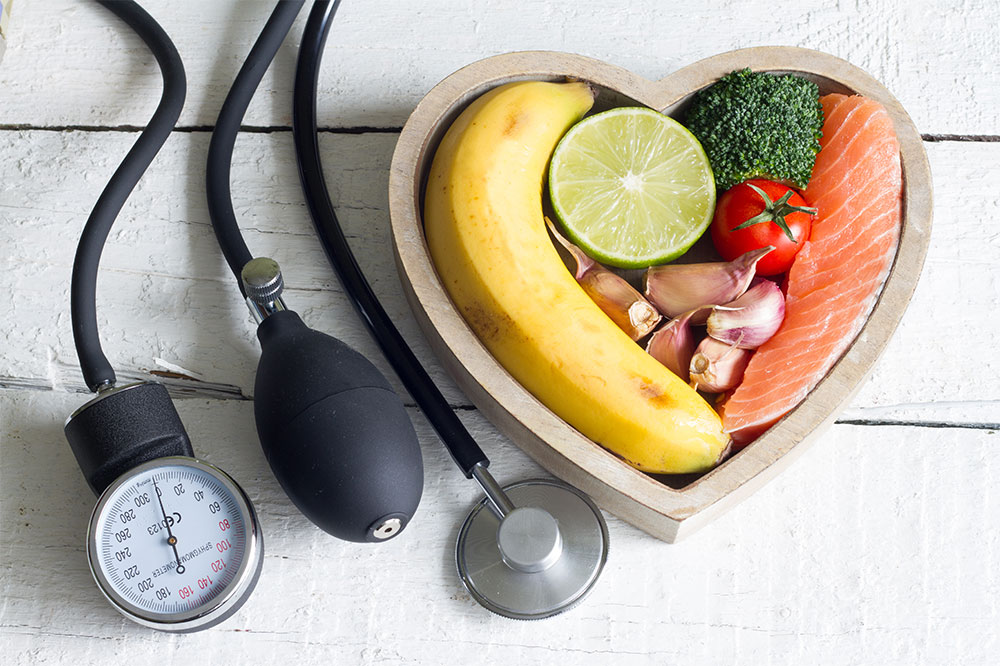A Complete Guide on How to Lower Blood Pressure
Lowering blood pressure is one of the best ways to improve health and prevent heart conditions. The key to lowering blood pressure is not simply reducing salt intake or increasing exercise. There are many factors that contribute to high blood pressure, including body weight and age. The good news is you can do many things to maintain an optimum level of blood pressure. Here’s all you need to know about high blood pressure:

High blood pressure – How to lower it?
Blood pressure refers to the force of blood pushing against the walls of the arteries as it circulates through the body. When your blood pressure is too high, it can lead to serious health issues, like heart attack and stroke.
Lowering blood pressure means reducing the amount of pressure in the arteries. This will help by reducing the amount of work that needs to be done by your heart. When the heart is not working as hard, the pressure will be lowered. This can be achieved by taking antibiotics or changing certain lifestyle habits, like exercising more, having balanced meals, and stress management. Furthermore, research shows that vitamin C and E can be used to lower high blood pressure.
What causes high blood pressure? How does it affect the body?
Lowering high blood pressure is common. It affects a bunch of people at some point in their lives. High blood pressure affects the body in many ways, some of which are more serious than others.
One of the most common effects of high blood pressure is damage to your heart. High blood pressure can cause your heart to work harder and pump less efficiently, which causes your heart to become damaged over time. This can lead to heart failure, a condition where your heart no longer pumps enough blood throughout your body.
The second effect of high blood pressure is damage to other parts of your body, such as the brain and kidneys. High blood pressure can cause the arteries to become clogged with plaque because they have to work harder than usual, which can lead to strokes or kidney failure.
High blood pressure also puts you at risk for developing aneurysms, bulges in the walls of the arteries that can rupture and bleed into surrounding tissue or even break off from their parent artery. Additionally, there are chances of a stroke, when someone’s arteries are blocked and the blood cannot reach the brain.
What are the best ways to lower blood pressure?
The human body is a fantastic thing. It can do many things we take for granted every day, like digesting food and making blood cells. While it’s pretty good at keeping us alive, it does have its limits. When you push your body too far, one of the things it can’t do is react. But you don’t have to let this be a problem. Here are some remedies for high blood pressure:
Losing weight
When you lose unhealthy weight, you reduce the risk of hypertension and other diseases related to high blood pressure. You also decrease the stress on your heart, which can lead to heart disease. If you have high blood pressure, losing weight will help lower the risk of developing heart disease or stroke. You may also reduce the risk of stroke by lowering your cholesterol and triglyceride levels. Fruits like lime, orange, and grapefruit are among the few fruits to reduce blood pressure naturally.
Eat less salt (sodium)
High blood pressure can be caused by several factors, including fluid and electrolyte imbalances. Eating high amounts of sodium can cause the body to retain water and increase blood pressure. One way to lower blood pressure is by reducing the amount of sodium consumed. This can be accomplished by decreasing the number of processed foods you eat and cooking with salt-free seasoning instead.
Sleep well at night
Getting a good night’s sleep is one of the best ways to lower blood pressure. You must get enough sleep if you want to maintain healthy blood pressure. Without adequate rest, your body will not be able to work at its optimal level. That’s because when you’re tired, the body resorts to using less energy and more power from its reserves. This means that your heart rate and blood pressure will decrease.
Dehydration
Dehydration can lead to high blood pressure. The kidneys, responsible for regulating the blood volume and removing waste products, produce a hormone called vasopressin, also known as an antidiuretic hormone. This hormone signals the kidneys to retain water and help prevent dehydration. When dehydrated, your kidneys release less vasopressin and produce more urine.
Performing yoga and other exercises
Exercising is another great way to keep the blood flowing at optimal levels and get your heart fit. If you’re new to exercise or have been inactive for a while, consider starting slowly and building up from there over time, so that your body has enough time to adjust without having any major setbacks.
If you’re looking for a way to maintain your blood pressure, the best thing you can do is talk to your doctor about it. They will be able to help you come up with a plan that works for your lifestyle and needs. There are many ways to bring down blood pressure, and it’s essential to find the one that works best for you.















